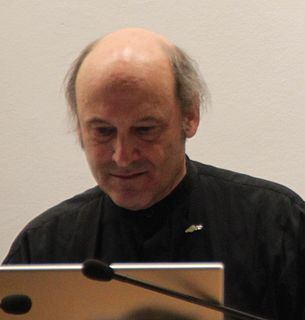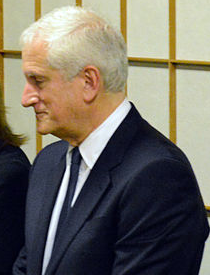A Quote by Paul Virilio
I have said many times before, interactivity is the equivalent of radioactivity. For interactivity effects a kind of disintegration, a kind of rupture.
Quote Topics
Related Quotes
Online education is pretty special for two reasons. One is that you can get the very best lecture in the world and wherever you are, whenever you want, you can connect to that lecture. The other is this interactivity, where if you know a topic, you can kind of skip over it. Or if you're confused about it, [the area] where you're confused can be analyzed by software.
I'm not so interested in this series of ruptures, where minimalism took over pop art, and then neo-expressionism was a triumph over that. I'm not interested in rupture - I'm interested in healing, bringing things together, building bridges. Not dismissing what has come before as a kind of modernist precedent, where one thing has to be broken in order to achieve something else. I don't believe in that kind of attitude. I think we're beyond that at this stage.
Clary glanced past him and asked, "Where's Magnus?" "He said it would be better if he didn't come. Apparently he and the Seelie Queen have some kind of history." Isabelle raised her eyebrows. "Not that kind of history," said Alec irritably. "Some kind of feud. Though," he added, half under his breath, "the way he got around before me, I woudn't be surprised.




































